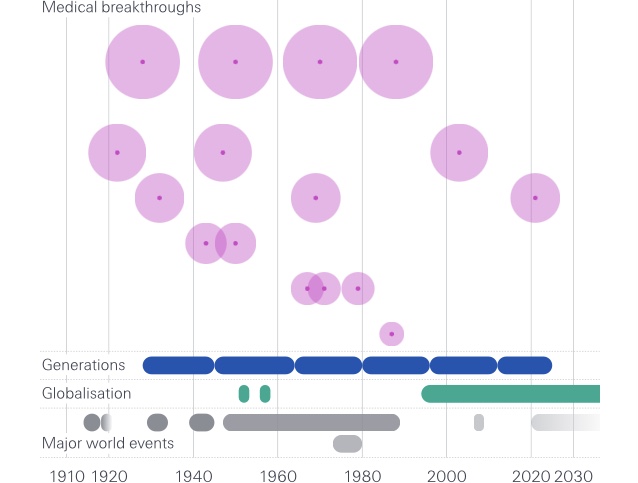Centenarians Are on the Rise: How Living Longer Will Affect Society’s Economics
By JayDee Vykoukal According to a Pew Research Center analysis of United States Census Bureau data, the number of Americans aged 100 and older is expected to more than quadruple over the next three decades. The population is projected to reach 422,000 in 2054, up from an estimated 101,000 in 2024. These centenarians aren’t the only aging demographic on the rise. The 2020 U.S. Census count found one in six Americans is over 65, compared to less than 1 in 20 in 1920. Older...










